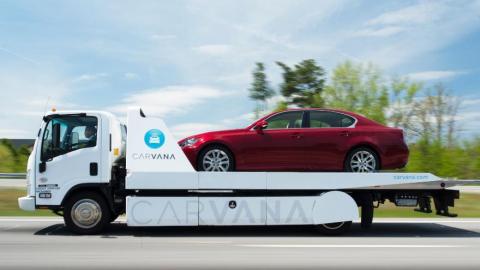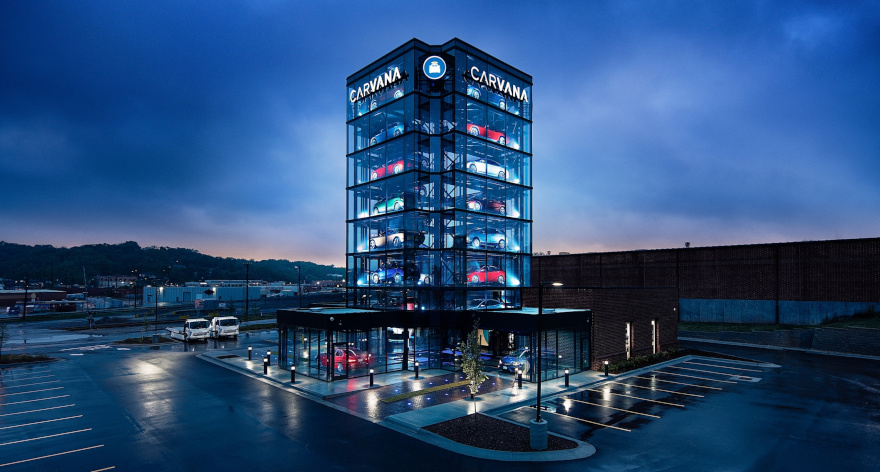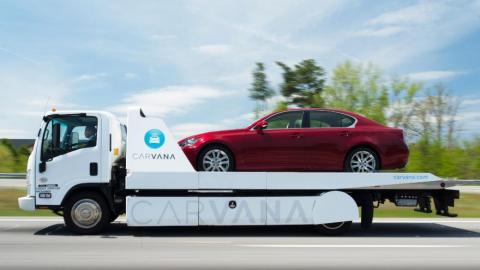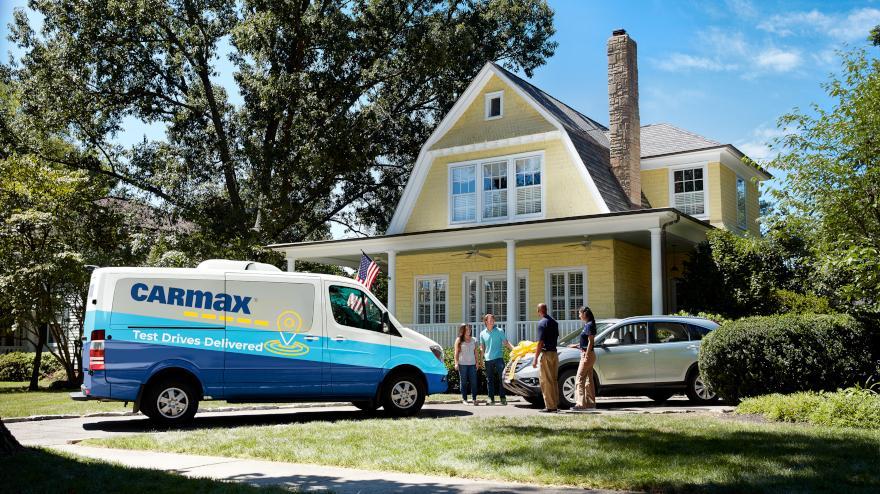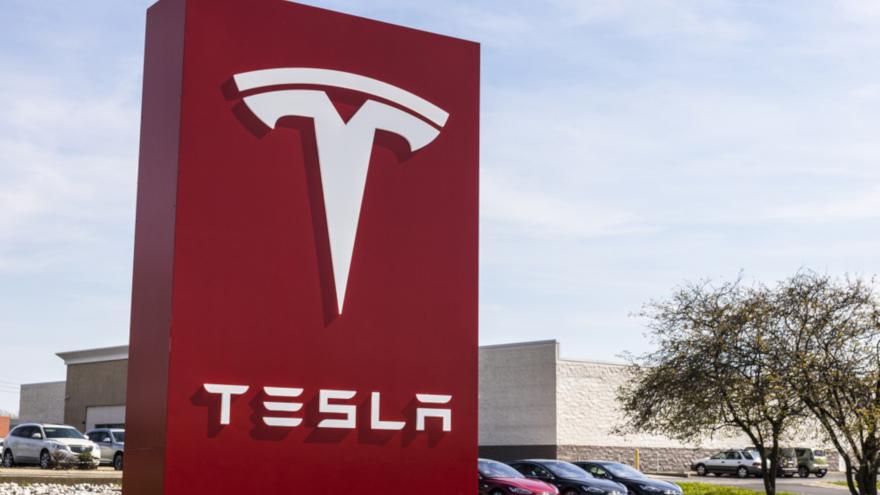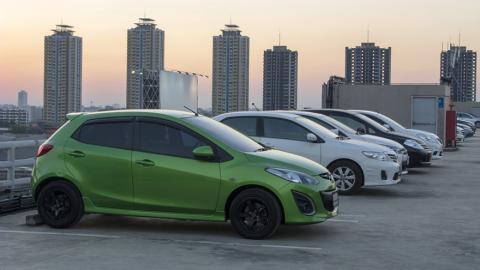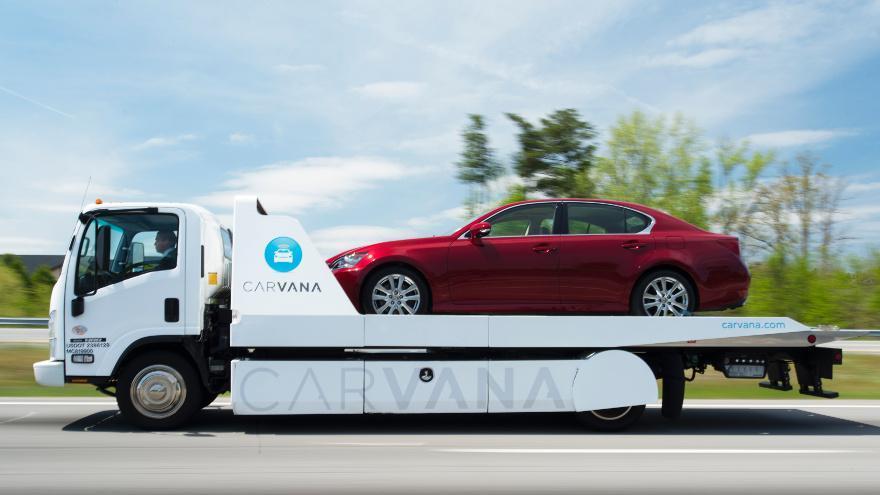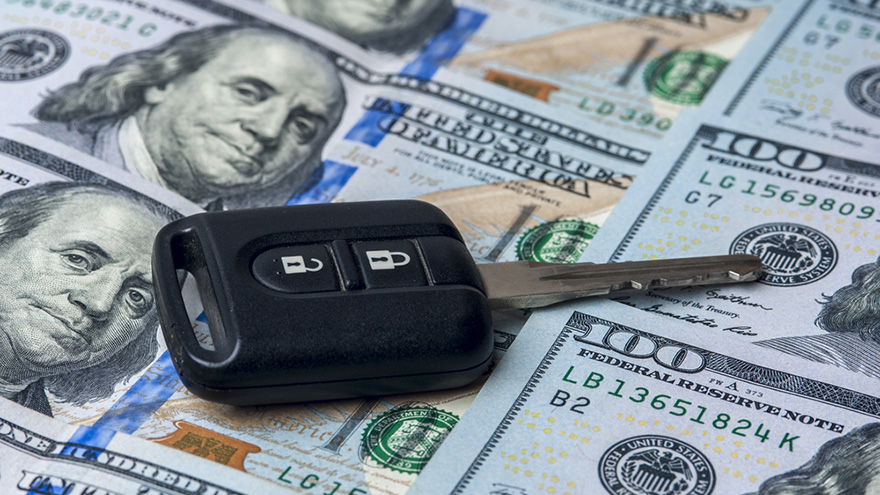With the Ford Mustang, a college graduate can enjoy the use of a quick, sporty car before family life kicks in.
The 2015 to 2019 model Mustang is one of 10 vehicles that Autotrader has named as the “best cars for recent college graduates in 2019.”
Autotrader managing editor Tara Trompeter said in a news release that each vehicle on Autotrader’s list can serve as an entry-level car “that will have recent graduates riding in style as they begin their new journey.”
The top 10 vehicles from Autotrader for college graduates, not in order, are:
2012-2017 Jeep Wrangler
Long before these graduates were in middle school, this vehicle made its way on the market. Autotrader says the Jeep Wrangler JK generation is perfect for young adults “who want to do some off-roading and like the classic utilitarian look.” Autotrader also notes a 2012 upgrade to the vehicle featured a more powerful V6 engine, automatic transmission and standard four-wheel drive.
2014-2019 Kia Soul
Autotrader says the all-new 2020 Kia Soul might be a bit out of price range for college graduates. But in the areas of safety and style, the company says “the outgoing second-generation model” is affordable, spacious and reliable.
2015-2019 Ford Mustang
Mentioned earlier as a “quick, sporty car,” the Ford Mustang began its current generation in 2015 with substantial interior design and quality improvements, according to Autotrader. The vehicle is available with automatic or manual transmission as a coupe or convertible.
2015-2019 GMC Canyon
Friends of college-graduate owners of the GMC Canyon might come calling for moving help when they move out of their dorms. But for college graduates who like the idea of a truck but don't want a big gas guzzler, the GMC Canyon is a great option, Autotrader says.
2015-2019 Honda Fit
Autotrader says that although the Fit’s subcompact proportions might scare people away, this vehicle has “a huge reconfigurable interior.” That includes a back seat that Autotrader says is roomier than several cars that are a size bigger.
2016-2019 Chevrolet Volt
The Volt features what Autotrader describes as an impressive all-electric range of 53 miles and a modern interior. Autotrader says the vehicle is “a fantastic plug-in hybrid” that suits environmentally conscious and fuel economy-conscious drivers.
2016-2019 Hyundai Tucson
With a roomy, quiet interior and high reliability ratings, according to Autotrader, the Hyundai Tucson is the “best bang for your buck” for a used compact SUV.
2016-2019 Toyota Prius
Autotrader acknowledges that the Toyota Prius might not be the coolest looking vehicle to impress your date. However, the company describes the Prius as “simply one of the most practical a recent grad can buy.” The company says the Prius is a great option for its safety features, “decent sized cargo area” and affordability.
2017-2019 Mazda CX-5
Autotrader describes the Mazda CX-5 as a class leader that will make drivers feel like they're in a much more expensive vehicle. The company compliments the vehicle for its smooth ride, sharp handling and roomy, comfortable seats.
2018-2019 Subaru Crosstrek
The Crosstrek is a “light off-roader with better road manners,” according to Autotrader. With symmetrical all-wheel drive, spacious back seats and good gas mileage, the vehicle is well-suited for camping with friends and spending less at the pump, according to the company.
Used car buying and selling e-commerce platform Carvana is keeping up its busy launch schedule, now offering as-soon-as-next-day delivery in four Mid-Atlantic markets.
Carvana announced on Wednesday it has launched in the Hagerstown, Md., Salisbury, Md., Charlottesville, Va., and Roanoke, Va., areas.
Carvana now offers as-soon-as-next-day vehicle delivery in 129 markets across the United States.
“Our goal is to bring the new way to buy a car to as many people as possible,” Carvana founder and chief executive officer Ernie Garcia said in a news release. “As we widen our reach along the Mid-Atlantic, we look forward to offering the convenience of as-soon-as-next-day vehicle delivery to Hagerstown, Salisbury, Charlottesville and Roanoke area residents.”
The announcement follows a busy April for Carvana, in which the company expanded its presence in states including California and Colorado.
Carvana unveiled its first Carvana Car Vending Machine in Missouri on Thursday. The machine, located in Kansas City, stands eight stories high and holds 27 vehicles.
Also on Thursday, Carvana launched as-soon-as-next-day vehicle delivery to Topeka.
The Kansas City car vending machine, located at 1700 W. 29th St., is the 18th in the U.S. for Carvana. Additional car vending machines are located in Tennessee, Texas, Florida, North Carolina, Maryland, Arizona, Pennsylvania, Ohio, Indiana and Illinois.
The Kansas City car vending machine is open Monday through Saturday from 9 a.m. to 7 p.m. central time. Vehicle pickup at any of Carvana’s car vending machines is free for all Carvana customers.
Carvana founder and chief executive officer Ernie Garcia said the company launched as-soon-as-next-day vehicle delivery to the Kansas City metro area just over a year ago.
“We’ve found that area residents appreciate our new way to buy a car, and as we grow our presence in the Midwest, we’re proud to add a car vending machine to Kansas City’s skyline, as well as expand our services to Topeka today,” Garcia said in a news release.
Customers who choose to pick up at the car vending machine receive a commemorative, oversized Carvana coin to activate the vending process.
After making its Wisconsin debut in Milwaukee last year, used car buying and selling e-commerce platform Carvana said on Tuesday it has launched in Green Bay and Appleton, Wisc.
“We’re eager to expand in the state, and we’re confident Green Bay and Appleton will enjoy our new way to buy a car,” Carvana founder and chief executive officer Ernie Garcia said in a news release.
With the Wisconsin expansion, Carvana now offers as-soon-as-next-day vehicle delivery in 124 cities across the United States. The Wisconsin announcement follows recent news of Carvana’s expansion in Colorado and launches in Illinois, Michigan and California.
CarMax’s rollout of its buying experience continues.
In December, the company announced a program it describes as a customer-driven buying experience in which customers can buy a car completely from home, in-store, or a combination of both. CarMax said it plans to make the program available nationwide to most customers by early 2020.
On Monday, CarMax announced its opening of a new Customer Experience Center this July in Olathe, Kansas, part of the Kansas City metro area. It will be the second standalone Customer Experience Center that CarMax is opening to support the company’s new customer-driven buying experience rolling out nationwide.
The initial launch was in Atlanta.
CarMax has a 15-year history in the Kansas City area. Two existing CarMax stores are in operation in the greater Kansas City area. The new Customer Experience Center will be located at 17300 W. 119th Street in Olathe, and CarMax said it is seeking individuals with strong communications and sales skills to work in the new center. The company is recruiting for Spanish bilingual candidates for approximately one-third of the open positions, and all candidates can apply at jobs.carmax.com.
CarMax Consultants working in the new center will serve customers over the phone or online with shopping and financing. The service will continue until the customer is ready to pick up his or her vehicle at a store location or receive the vehicle through home delivery.
The Kansas City Area Development Council made the announcement of the new Kansas center, noting that the move will create approximately 300 assistant, manager and customer experience consultant positions.
“The Kansas City region is the perfect location for CarMax,” Kansas City Area Development Council president and chief executive officer Tim Cowden said in a news release. “Our region’s real estate and workforce offer a high-quality location for customer support services, and KC has been named the No. 2 auto hub in North America by The Brookings Institution.”
In attracting CarMax to the region, KCADC worked with regional partners such as the Kansas Department of Commerce, State of Kansas, Olathe Chamber of Commerce, City of Olathe, Evergy, Kansas Gas Service, Cushman & Wakefield and Karbank Real Estate Company LLP.
Kansas Gov. Laura Kelly is happy CarMax chose Kansas “to expand its footprint.”
“Kansas is the perfect place for a nationally recognized Fortune 500 company like CarMax,” Kelly said. “I’m confident that they will continue to enjoy the ease of doing business in our state, as well as the quality of Kansas workers.”
Despite the high average sale price of a late-model used Tesla Model S at $68,159, those vehicles sell faster than similar large luxury cars, with an average selling time of 35.5 days, according to a study from automotive research firm and car search engine, iSeeCars.com
At the same time, however, among its comparable vehicles, the Model S is one of the most likely late-model used cars to be deeply discounted.
The used late-model version of the Model S sells faster than its competitors by more than a week on average. That shows that Tesla’s late-model used models are in high demand, and that is likely because of competitive pricing and low supply, iSeeCars chief executive officer Phong Ly said in a news release.
iSeeCars’ late-model used car sales analysis of the Model S and nine comparable large luxury cars found that the late-model used Tesla Model S average selling time of 35.5 days is 24.2% faster than the average for this set of cars, which is at 46.9 days. In addition, the Tesla Model S number is 15.8% faster than the 42.2-day overall average for all late-model used cars.
The $68,159 average sale price for a late-model used Tesla Model S makes it the fourth most expensive vehicle among other large luxury cars. But it is also the second most likely late-model used car in its class to be deeply discounted, behind only the Jaguar XJ.
Almost 20% of late-model used Model S cars are discounted by at least 10% below market value, almost one and a half times more often than the average for comparable models, Ly said.
“While the supply for used Teslas is still relatively low, it has been growing steadily as more vehicles come off lease, which could cause dealers to be more competitive with their pricing,” Ly said. “These significant deals likely contribute to their fast selling time.”
Rounding out the top five on the average late-model used car selling time are the Audi A7, Audi A8, Mercedes-Benz S-Class, and BMW 6-Series. iSeeCars.com analyzed 6.1 million late-model used car sales from April 2018 to March 2019 from model years 2016 to 2018. iSeeCars then compared the Tesla Model S to nine other similar large luxury sedans. For each model, the number of days each car was listed on iSeeCars.com was calculated, as was its average price. In addition, the number of cars which were listed for 10 percent or more below market value was tallied for each model.
Noting that range anxiety is a key factor keeping consumers from purchasing an electric vehicle, iSeeCars says the Model S has combated that issue by offering what iSeeCars says is the longest range of all electric vehicles and nearly double the range of other popular electric vehicles such as the Nissan LEAF. That range for the Model S starts at 259 miles for the base model and 335 miles for its performance-oriented model.
“In addition to having a range that likely exceeds the mileage of daily drivers, Model S drivers can take advantage of the convenience of Supercharger stations in dense metro areas that can charge a battery to 80% in under 30 minutes,” Ly said. “The popularity of the Model S shows that the company has helped dispel concerns about vehicle range and has paved the way for other luxury automakers, such as Jaguar, to introduce EVs into their model lineups.”
iSeeCars says the Model S’s technological capabilities such as its Autopilot driver-assist system, a large touchscreen infotainment display, internet connectivity and over-the-air software updates keep the vehicle current.
The results of the study:
— Tesla Model S, an average of 35.5 days on market for late-model used
— Audi A7: 39.7
— Audi A8: 39.8
— Mercedes-Benz S-Class: 41.6
— BMW 6 Series: 48.5
— BMW 7 Series: 48.7
— Jaguar XJ: 49.8
— Genesis G90: 56.7
— Porsche Panamera: 60.1
— Maserati Quattroporte: 69.8
Overall average days on market: 46.9
Among the most discounted vehicles in the Tesla Model S class:
— Jaguar XJ: 21.1% of listings discounted 10% or more
— Tesla Model S: 19.7%
— BMW 7 Series: 17.9%
— BMW 6 Series: 17.5%
— Maserati Quattroporte: 16.2%
— Genesis G90: 15.9%
— Audi A8: 12.4%
— Mercedes-Benz S-Class: 11.8%
— Audi A7: 9.6%
— Porsche Panamera: 8.5%
Overall average: 13.8%
More than half of all people in a recent survey in the northeast United States are considering an electric car when shopping for a new vehicle. But the survey shows that number increases to 63 percent when considering only millennials. When considering Baby Boomers alone, the number falls to 38 percent.
That is just one bit of many statistics coming from a “Drive Change. Drive Electric.” campaign study. The study says that electric vehicle sales make up only about 2% of new-vehicle purchases in the region. But if either group — millennials or Baby Boomers — follows through on its interest level for EVs, the Northeast will see a “huge spike” in electric vehicle sales, according to the study.
But for all age groups, the study shows some additional noteworthy statistics about electric vehicles. Although only 3 percent of Northeasterners are currently driving an electric vehicle, 52% are considering an electric vehicle as their next purchase. And the No. 1 concern about electric vehicles? Availability of charging stations.
A total of 83% of those surveyed say not enough charging stations are available, but almost half have noticed more electric vehicle charging stations in their area over the past year.
“In the Northeast, hundreds of millions of dollars are being invested in building out charging infrastructure to meet growing demand. In the last year alone, the number of public charging stations increased by more than 20 percent in the Northeast, and there are plans to add even more stations in 2019,” Northeast States for Coordinated Use Management policy and program director Elaine O’Grady said in a news release.
“Also, people without electric cars often don’t realize that most charging takes place at home overnight,” she continued. “In any event, the fact that people are noticing more charging stations in their communities is encouraging and a clear indicator that we are making significant progress toward raising awareness and building confidence that public charging stations are available.”
Another main concern of survey participants: range. The survey shows that 81% of drivers in the Northeast say the distance an electric vehicle can travel before a re-charge is necessary is a concern.
And 85% of Northeasterners say high upfront costs are a barrier to going electric, even though 64 percent believe EVs will allow them to save money overall. The study finds that national and state financial incentive programs such as tax credits and rebates are a major purchase motivator for Baby Boomers and Millennials.
The study also addressed gender differences: 53% of Northeasterners don’t feel knowledgeable about electric vehicles, with the number higher among women, at 64%.
But the study found additional positive signs for the future of electric vehicles:
—60% of Northeasterners say their household is more likely now to consider an electric vehicle today than it was a year ago. Eighty-two percent of Northeasterners would like more types of electric vehicles to be available in the marketplace.
—88% of Northeasterners would like to lower their vehicle emissions footprint. About seventy-five percent say gas-powered vehicles are becoming “antiquated.”
—80% of Northeasterners would more likely consider EVs if more charging stations were available in their area.
But the generational findings of the study could have high impact on EV sales. Despite some generational differences in electric car knowledge, the study says millennials and Boomers agree on one main point: Electric is the future of automobiles. Both generations want to see the introduction of more electric vehicle models.
“Although we know the future is bright for electric cars, the need for education and awareness of the benefits of driving electric has reached a critical point,” O’Grady said. “Through the ‘Drive Change. Drive Electric.’ campaign, states and automakers are working together to increase awareness, instill confidence and make the switch to electric an easy choice for drivers of all ages today.”
Drive Change. Drive Electric. is a public-private partnership between auto manufacturers and Northeast states. Advancing consumer awareness, understanding, consideration and adoption of electric cars, including battery electric, plug-in hybrid electric, and fuel cell electric vehicles, is a campaign goal.
Carvana keeps on growing, and its presence is now climbing higher in the Rockies.
The e-commerce platform for buying and selling used cars on Thursday launched its as-soon-as-next-day delivery service for Colorado Springs, Boulder, Fort Collins and Greeley area customers.
Carvana now offers its service in five markets in the state and 122 markets across the United States.
“Colorado residents have so many different needs when it comes to a vehicle,” Carvana founder and chief executive officer Ernie Garcia said in a news release. “We’re proud to offer Colorado Springs, Boulder, Fort Collins and Greeley a national inventory of more than 15,000 vehicles, paired with as-soon-as-next-day vehicle delivery so they easily and quickly get exactly what they need without ever having to step foot in a dealership.”
The Colorado launches follow additional activity for the company in April, with recent launches in areas such as Rockford, Ill., Ann Arbor and Kalamazoo, Mich. and three additional markets in California.
Midwest auto dealer accounting and financial services firm Brady Ware Dealership Advisors wants to help dealerships with more than their accounting functions.
Brady Ware is launching a new business model that includes providing consulting services to help dealers focus on being more tax-efficient. The company says that will help safeguard dealership assets and help dealerships with succession.
Brady Ware director Sam Agresti said dealerships see several high-expense areas that make measuring return on investment challenging for management.
“From a CPA’s viewpoint, it’s necessary to understand and control these expenses,” Agresti said in a news release.
In response, he added, the company is changing how it approaches its relationship with dealerships.
“As we review the numbers monthly, quarterly or annually for our dealership partners, we’re now able to pinpoint inefficiencies and provide strategic solutions to address those areas and increase profitability,” Agresti said.
Some of the new services focus on fixed and variable operations enhancement, fraud and safeguarding assets, employee placement services, warranty reimbursement and digital marketing. To provide those services, Brady Ware has put together a team with extensive experience within dealerships and from consulting firms and support services with a focus on dealerships.
The company, which serves more than 80 dealerships throughout the Midwest and Georgia from offices in Ohio, Indiana and Georgia, says its new services are designed to improve processes and procedures in different departments. Many of those services are in response to evolving technologies and business practices.
For example, other than labor, digital marketing and advertising are one of the largest monthly expenditures, but for many dealerships, they are challenging to measure.
“The way people buy cars is very different today than it was 10 years ago,” Brady Ware digital marketing consultant Justin Ward said. “By the time a person hits the lot, they’ve done their research, picked out their car, and are likely just coming in to pick it up. They know it’s a necessary evil but don’t have a full understanding of what their dollars are buying and how that translates to ROI. That’s where we come in, and our approach as part of Brady Ware is coming from a very analytical and finance-forward place in the interest of improving their bottom line.”
“For more than 30 years, I’ve crunched numbers for automotive groups and, from where I’m sitting, the math is the easy part,” said Sean McCarthy, who recently merged his practice with Brady Ware to offer CFO-level services to dealership partners.
“But you can’t manage what you can’t measure. This team allows us to measure every aspect of the dealership business and create solutions that help them fill a need, grow their operation and best position them for the future.”
In 2019, 70 percent of surveyed truck owners said they would switch brands if their preferred pickup truck brand increased its prices by $10,000. That number is up compared to 64 percent in 2018.
That is according to CarGurus’ 2019 Truck Sentiment Survey, which compared pickup truck owner brand sentiment to a similar survey the company conducted in 2018. The company also surveyed current and previous pickup truck owners’ perception of the vehicle category.
CarGurus said pickup trucks are having an impact on bottom lines across the automotive industry. Because of that, brand loyalty is becoming increasingly important to automakers.
Unfortunately for those automakers, brand loyalty among pickup truck owners is beginning to decrease compared to one year ago. That decrease in loyalty is even more pronounced when truck owners couple the brand loyalty question with increased prices.
Additional survey highlights:
—Toyota came out on top in the brand-loyalty category, as 41 percent of Toyota truck pickup truck owners were not willing to consider another brand.
—The least brand loyal? Current Chevrolet truck owners. Twenty-eight percent of them were not willing to consider another pickup truck brand, followed by Ford owners with 27 percent.
How do pickup truck owners feel about their vehicles? CarGurus also for their opinions on factors such as price and technology features, as well as their future plans for purchasing another pickup truck. The results:
— The vehicles are overpriced, according to 68 percent of truck owners.
— Fifty-four percent appreciate that their trucks have become more high-tech.
— Are trucks made as well as they used to be? Forty-eight percent of truck owners surveyed say no.
— Seventeen percent of truck owners surveyed will probably not buy another pickup truck.
For the survey, CarGurus surveyed 1,067 current and former pickup truck owners in February.
Among those participants, 581 currently own at least one pickup truck, while 486 had owned a truck previously, but no longer do. Among the current pickup truck owners, 195 own a Ford pickup truck, 154 own a Chevrolet pickup truck, 106 own a Toyota pickup truck, and 101 own a Dodge/Ram pickup truck.
Survey participants also included former pickup truck owners who have switched to another category, and 37 percent of them now own an SUV/crossover. Thirty-five percent now own a sedan.
“With pickup truck prices on the rise, many owners are reconsidering their current brand, or in some cases whether they will repurchase a pickup at all,” said Madison Gross, director of consumer insights at CarGurus. “While truck owners still have strong brand and category loyalty, the challenge for car manufacturers and dealerships is that loyalty is increasingly less reliable as a driver of sales.”
Other key takeaways:
Fifty-four percent state price and 47 percent say gas mileage as reasons for considering other brands. Also, truck shoppers may be more open to considering competitive brands than expected. For example, 35 percent of Ford owners planning to buy another pickup would consider a Chevrolet. And 37 percent of Chevrolet owners would consider a Ford.
The high costs of obtaining and maintaining a truck are leading some owners to switch to another vehicle category. Forty-two percent of former truck owners listed fuel efficiency and 24 percent selected costs as reasons they no longer own a truck. About 17 percent of current truck owners say they probably won’t buy another truck.
Among former truck owners, SUVs/crossovers and sedans are the most popular vehicles. Thirty-seven percent of previous truck owners now own a SUV/crossover. Thirty-five percent now own a sedan.
More information about the survey can be found here.


